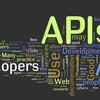The evaluation of Vision-Language-Action (VLA) agents is hindered by the coarse, end-task success metric that fails to provide precise skill diagnosis or measure robustness to real-world perturbations. This challenge is exacerbated by a fragmented data landscape that impedes reproducible research and the development of generalist models. To address these limitations, we introduce NEBULA, a unified ecosystem for single-arm manipulation that enables diagnostic and reproducible evaluation. NEBULA features a novel dual-axis evaluation protocol that combines fine-grained capability tests for precise skill diagnosis with systematic stress tests that measure robustness. A standardized API and a large-scale, aggregated dataset are provided to reduce fragmentation and support cross-dataset training and fair comparison. Using NEBULA, we demonstrate that top-performing VLAs struggle with key capabilities such as spatial reasoning and dynamic adaptation, which are consistently obscured by conventional end-task success metrics. By measuring both what an agent can do and when it does so reliably, NEBULA provides a practical foundation for robust, general-purpose embodied agents.
翻译:暂无翻译



